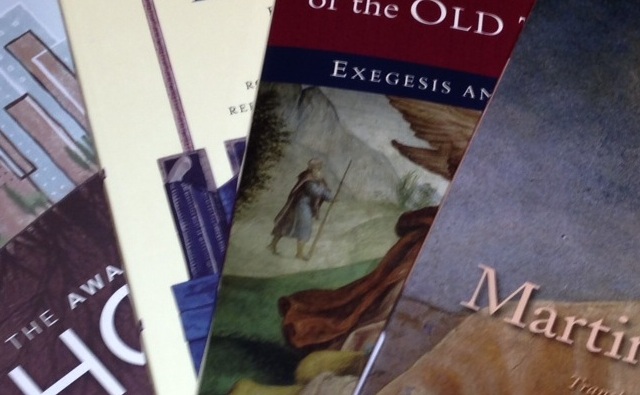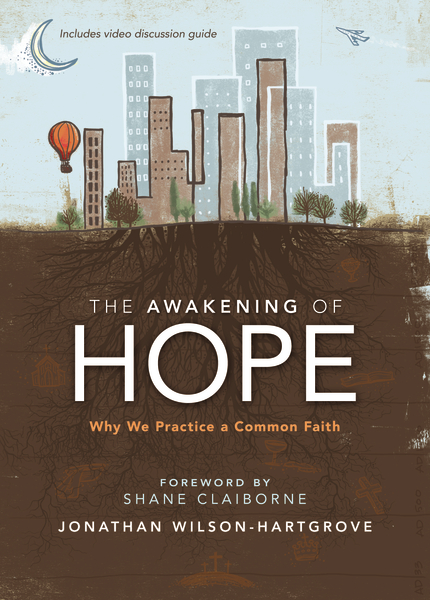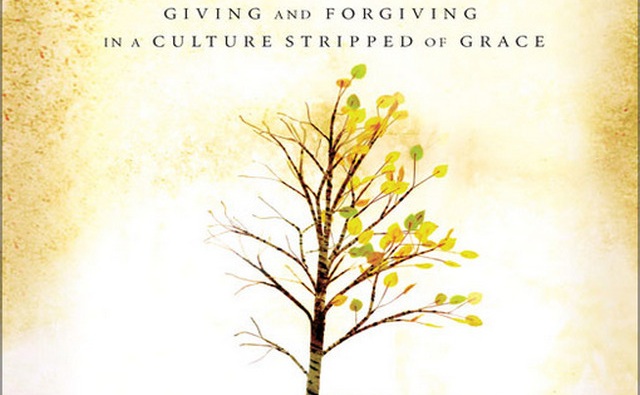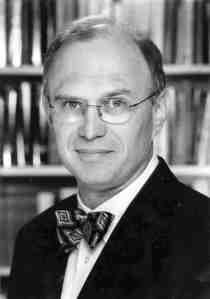
Ok, the previous two posts were more or less introductory so that I could get to what I consider to be the really interesting stuff. I’m sure you are just like me and you lie awake at night wondering “How would the Abraham stories have been received by the people as Moses was composing them?” Or maybe another way of asking it, “Why did Moses tell these stories to these people in the way that he did?”
Let’s play make believe. Pretend you are one of the Hebrews who has been freed from Egyptian captivity and now you are wandering around the Sinai Peninsula. As you are moving from place to place, Moses is writing and sharing stories of your ancestors. Among those stories, perhaps the most famous of them is Abram’s call to leave his home and follow God into a new land.
You don’t have to be the ancient equivalent of a Hebrew rocket scientist to start putting two and two together. You (and frankly all your fellow travelers) might think, “Hmmm… leave one place to follow God to another? Sounds familiar. Isn’t this exactly what we are doing right now?” Hold that thought.
Then come the promises – great nation, great blessing, great name. Let’s take them one by one.
I will make you into a great nation – Becoming a “nation” is tricky business in the Bible. It is about both having a number of people and having a land. The Hebrews may have been numerous, but they didn’t have any land that they could call their own. When we are introduced to Abraham in Genesis, he was a man without a nation. When we are introduced to not-yet-Israel in Exodus they are also nation-less. Both Abraham and Israel were on their way to becoming a nation. They were both looking for their place in the world.
I will bless you – In some ways, this is just an extension of the promise of nationhood. However, it is more than just blessing in sort of a bland generic way. When they find themselves in the land, they will have fruitful lives. Shalom (or peace… or wholeness) is what is being promised. They will have a life that radiates the goodness of being in the life giving presence of the one they know as Yahweh. Again, imagine a disenfranchised people who are discouraged and hopeless. The Abrahamic blessing is a powerful reminder that this isn’t the end of them. In fact, it is just the beginning.
I will make your name great – When I was teaching on this passage, I made the observation that this promise isn’t as much about being famous as it is about legacy. But what I didn’t get around to was discussing the importance of naming. When one “names” another in ancient cultures (and maybe to some extent today as well) it is a sign of the namer’s authority, or dominion, or ownership.
Take for example, the retelling of Adam naming animals in Genesis 2. This isn’t simply a cute scene in which he is sort of randomly passing out names. Cow, bird, iguana… The point is that through Adam’s naming, he is demonstrating dominion or rulership. Likewise, when God says that he’ll make Abram’s name “great,” that is loaded with overtones of rulership. In giving him a new name – Abraham – God is in essence saying, “You are mine. You belong to me. You have a new identity that is defined by my choosing you and naming you.”
Right about now, we (as imaginary Hebrews) are beginning to pick up on some not so subtle clues that this isn’t just a story about Abraham. Can you think of another “person” who God gave a new name? There are a few, but I’m thinking specifically about Jacob. During one episode in which Jacob and God re-enact the WWF out in the countryside, God gives him the name Israel, which means something like “wrestles or struggles with God.” Maybe not the name they would have chosen for themselves, but that’s precisely the point. They didn’t get to choose their name; God did the naming.
Once again, imagine you are “Israel,” or perhaps you are “struggling with God” out in the wilderness. As Moses is sharing these stories, they are reminded that God has named them. They belong to God. And he has made promises to Abraham, and therefore to them as well, that they will become a nation in the fullest sense. They will have a land. They will be blessed. And perhaps, most importantly they will be given a new identity by the One who names.
What God’s Chosen People are discovering as they listen to Moses retell the time-worn tales is that those stories are as much about them as they are about Abraham. It doesn’t mean that Abraham’s story isn’t true. It does mean that Moses is perhaps making a point of highlighting certain aspects of Abraham’s story to draw lines connecting Abraham’s story to theirs.
And now fast forward one-thousand years to the time shortly after the exile, and imagine how these stories might have been heard by the nation who “struggles with God” all over again. The same stories and the same promises are re-appropriated for God’s people in a new time.
Then maybe fast forward another two thousand years, and we are no longer in the realm of imagination. Our own reality is that we all too often find ourselves “struggling with God.” And like all God-wrestlers over the centuries, we too are longing for our place in the world, a desire for blessing manifested in Shalom wholeness, and a new identity given to us by the great covenant-Maker.
I think I’m about done now. There is lots that could be said about the fourth promise, “You will be a blessing … to all peoples,” but you quite simply can’t say all that there is to say.
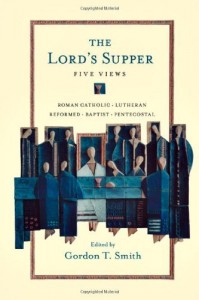 The Lord’s Supper: Five Views // I realize that most people are unaware that there are more than two view, but I was somewhat surprised to discover that there are no less than five! Over the last few years, I have been moving from a memorialist (symbol only) understanding of this observance to a more sacramental (real presence) view. Of course, I don’t have it all worked out, but I think that’s probably as it should be… with the Lord’s Supper as well as most theological truth. If you’ve got it all figured out, let me know… you’ll be the first.
The Lord’s Supper: Five Views // I realize that most people are unaware that there are more than two view, but I was somewhat surprised to discover that there are no less than five! Over the last few years, I have been moving from a memorialist (symbol only) understanding of this observance to a more sacramental (real presence) view. Of course, I don’t have it all worked out, but I think that’s probably as it should be… with the Lord’s Supper as well as most theological truth. If you’ve got it all figured out, let me know… you’ll be the first. Next up is The Awakening of Hope: Why We Practice a Common Faith // I think I mentioned this one a while back. Somehow a group of guys I meet with on Monday mornings agreed to read this with me. To say that it has provoked some interesting conversations and several “eye-rolls” is an understatement. So not everyone thinks the “new monasticism” is a wonderful expression of the Christian faith… their loss.
Next up is The Awakening of Hope: Why We Practice a Common Faith // I think I mentioned this one a while back. Somehow a group of guys I meet with on Monday mornings agreed to read this with me. To say that it has provoked some interesting conversations and several “eye-rolls” is an understatement. So not everyone thinks the “new monasticism” is a wonderful expression of the Christian faith… their loss.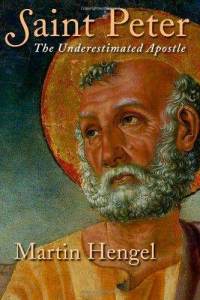 Now we are venturing more towards my true “nerd” center. This one is for a what is turning into a lifetime project of research and writing on 1 Peter’s use of the Old Testament. Hengel, a German New Testament scholar, passed away a few years ago. He was one of the most influential theologians of the past century. I know you’ve never heard of him. He was German, so maybe it is understandable. He’s no Francis Chan. This book was one of the last that he published.
Now we are venturing more towards my true “nerd” center. This one is for a what is turning into a lifetime project of research and writing on 1 Peter’s use of the Old Testament. Hengel, a German New Testament scholar, passed away a few years ago. He was one of the most influential theologians of the past century. I know you’ve never heard of him. He was German, so maybe it is understandable. He’s no Francis Chan. This book was one of the last that he published. You have stopped reading by now, so it doesn’t matter, but this one is also for the thesis. For what it is worth, I think Beale’s understanding of the way in which New Testament writers utilize the Old is probably as close to “right” as it gets. Hopefully, the approach he recommends is what I’ll be using in the months to come.
You have stopped reading by now, so it doesn’t matter, but this one is also for the thesis. For what it is worth, I think Beale’s understanding of the way in which New Testament writers utilize the Old is probably as close to “right” as it gets. Hopefully, the approach he recommends is what I’ll be using in the months to come.
